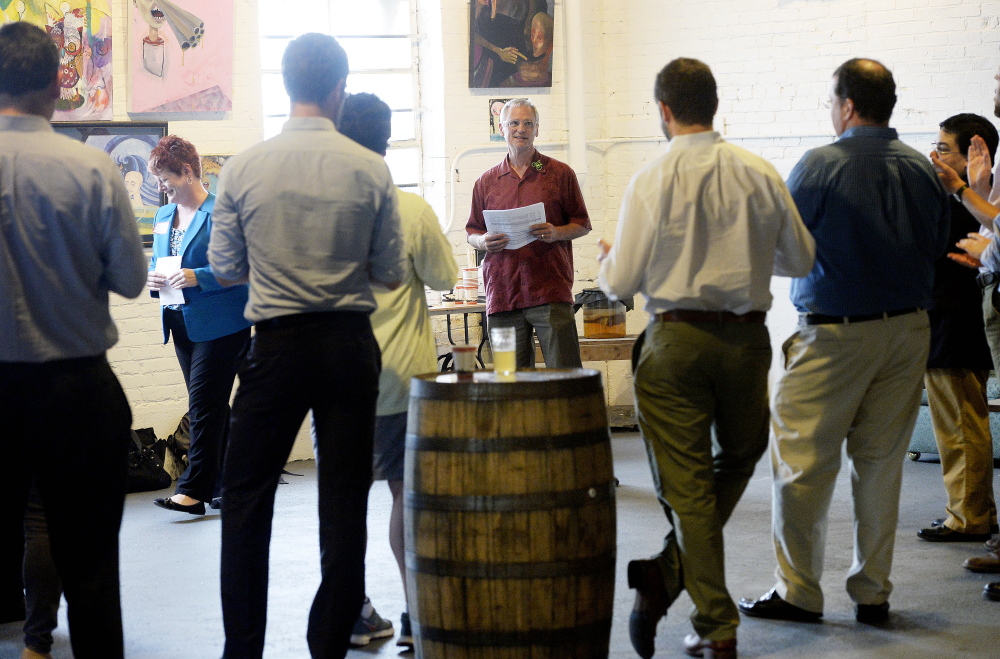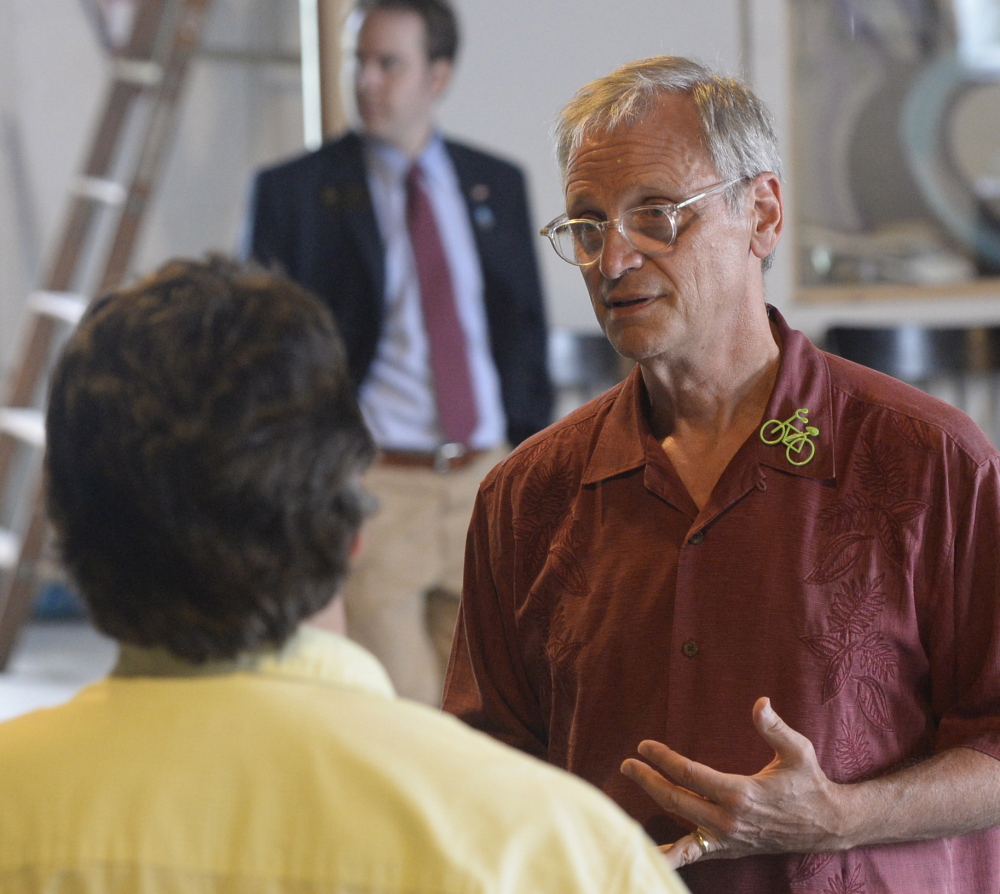U.S. Rep. Earl Blumenauer, D-Oregon, said he was still practically a “child legislator” when, in 1973, he joined other lawmakers voting to make Oregon the first state where marijuana possession earned the offender a civil citation rather than a criminal record and jail time.
Blumenauer was also among a smaller group of Oregon legislators who voted – unsuccessfully – to legalize possession of two marijuana plants for personal use.
“I am told that if the 19 of us that voted for it were joined by the people who voted ‘no’ but smoked dope, Oregon would have been the first state to legalize adult use” of marijuana, Blumenauer joked Thursday as he talked in what Mainers refer to as “the original Portland” about his decades of work on marijuana issues.
It would be 41 years before Oregon voters finally legalized recreational use of marijuana, following similar votes in Colorado and Washington in 2012. With Maine voters potentially facing the same decision in November 2016, Blumenauer said “it is nothing short of astounding” to see the rapid changes in marijuana policy. The Portland Democrat also predicted that, within five years,”it will be game over” with the federal government stepping aside to let states decide how to deal with a drug that he argued should be regulated like alcohol, not heroin.
“I think that’s an appropriate resolution,” Blumenauer told the group gathered at the Urban Farm Fermentory. “If Colorado wants it and Utah doesn’t, so be it. But the federal government shouldn’t be in the way. And we should be able to move past a failed system of prohibition and a serious flawed application of criminal justice which is hopelessly unfair and racially discriminatory.”
A prominent voice on Capitol Hill for marijuana legalization and regulation, Blumenauer was in Maine partly on business and for pleasure because his wife’s family owns a camp in the state. The couple’s youngest also recently graduated from Colby College.
Thursday’s event was organized by David Boyer, director of the Campaign to Regulate Marijuana Like Alcohol, one of two groups – the other being Legalize Maine – waging competing petition drives to put a legalization question on Maine’s 2016 ballot. The small crowd included campaign activists, elected officials active on marijuana policy issues and individuals who work in Maine’s thriving medical marijuana industry.
Maine voters first legalized marijuana for medical use in 1999 and significantly expanded the law a decade later by adding a system of medical marijuana dispensaries and caregivers. Portland became the first East Coast city to legalize possession of small amounts of marijuana for recreational use in 2013 after a voter referendum, followed by South Portland last year. But police in both cities have warned that they will continue to enforce state and federal laws.
First elected to Congress in 1996, Blumenauer is a liberal Democrat and vocal advocate for environmental protection, public transportation, on bicycle and pedestrian issues, and for “sustainable cities.” He started Thursday’s visit with a bike tour of the city with members of the Bicycle Coalition of Maine.
Blumenauer has also emerged as one of the leading voices in Congress for federal legalization of marijuana. He is currently co-sponsoring two bills with Rep. Jared Polis, D-Colorado, to legalize the drug and to impose a federal excise tax on non-medical marijuana.
The Oregon Democrat came to Maine less than two months after his home state made recreational use of marijuana legal in private settings.
“So far the sky has not fallen, and no big cracks have developed in the earth,” Blumenauer said. “We have not had problems in terms of young people being corrupted and we’ve watched law enforcement dial it back a bit.”
Numerous polls show that the majority of Americans now believe marijuana should be legal. Yet amid the push to legalize marijuana, governments, law enforcement agencies and even marijuana-related businesses are scrambling to keep up. On Wednesday, the state of Washington’s Traffic Safety Commission reported that the number of drivers involved in fatal crashes who tested positive for marijuana doubled between 2013 and 2014 when marijuana sales became legal in the state, according to The Associated Press.
Scott Gagnon, who opposes legalization as the state’s leader of Smart Approaches to Marijuana Maine, did not attend Thursday’s event but is familiar with Blumenauer’s work. Gagnon said he believes the congressman’s 5-year prediction was optimistic and said he believes many Mainers will become more wary of legalization as they hear about concerns arising in states such as Colorado and Oregon about impaired driving and youth access to marijuana.
“The more we show that and share that (information) with folks in Maine, the more people will understand,” Gagnon said.
Send questions/comments to the editors.





Success. Please wait for the page to reload. If the page does not reload within 5 seconds, please refresh the page.
Enter your email and password to access comments.
Hi, to comment on stories you must . This profile is in addition to your subscription and website login.
Already have a commenting profile? .
Invalid username/password.
Please check your email to confirm and complete your registration.
Only subscribers are eligible to post comments. Please subscribe or login first for digital access. Here’s why.
Use the form below to reset your password. When you've submitted your account email, we will send an email with a reset code.